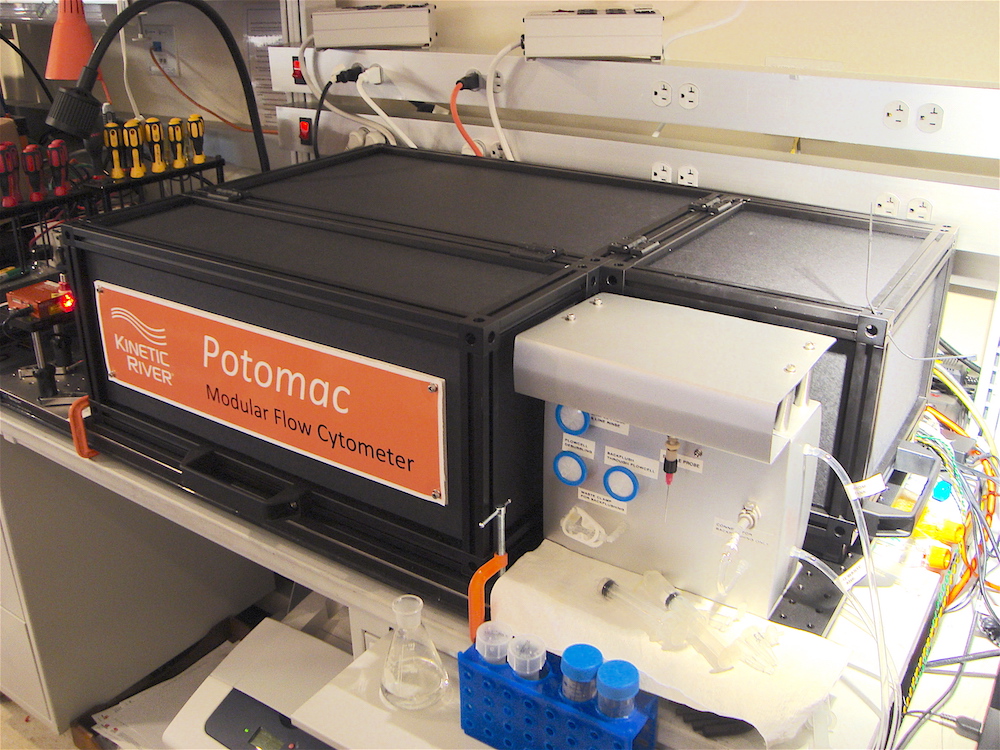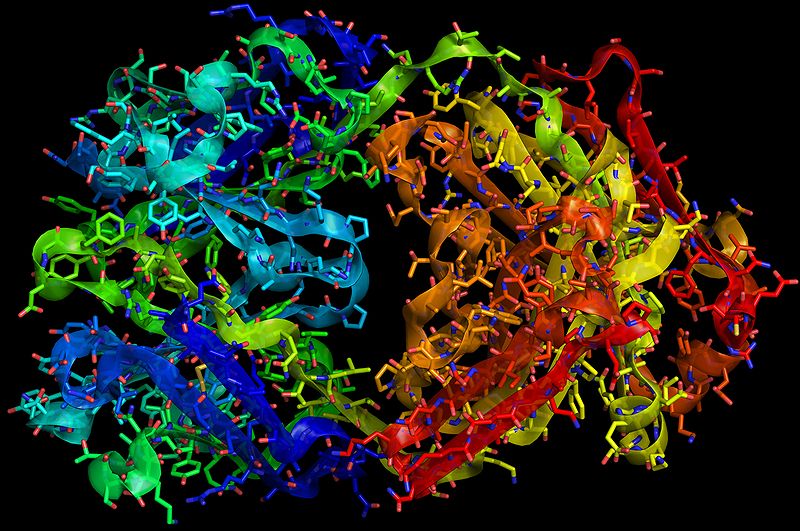Flow Cytometers: Empowering New Discoveries
In June 2017, Laser Focus World published this article by Dr. Vacca; the following is a short summary.
Flow cytometers have been at work in labs for years, contributing to our understanding of biology and medicine. With more scientists gaining access to these high-performing instruments, new insights will keep coming.
The what and how of flow
Flow cytometers analyze the physical and biological properties of cells. Suspended in a narrow stream of fluid, and often stained with fluorescent dyes, cells pass in single file through one or more laser beams within the flow cytometer. The resulting scattered and fluorescent light is collected in detectors to count and characterize the cells.

This flow cytometer, Kinetic River’s Potomac, features a flexible, modular architecture so that researchers can customize the system based on their application.
Flow cytometers proved their worth in the 1980s during the AIDS epidemic, when clinicians began to use them to detect and count a type of blood cell that indicates an active case of AIDS. Have you had a complete blood count (CBC) test lately? This commonly ordered hematology test makes use of flow-based technology for medical diagnostics.
More answers, cell by cell
Recent advances in hardware miniaturization, including pocket-size solid state lasers and palm-size photo detectors, have led to simpler instruments that fit on a benchtop instead of taking up a room. Today’s flow cytometers cost less, are easier to use, and have more capabilities than ever.
With increasingly powerful software, and more lasers, gains are being made in multiplexing—measuring multiple cell characteristics simultaneously. This capability enables flow cytometers to enhance our understanding of the complex human immune system. Some flow cytometers offer cell sorting capability, isolating and then collecting specific cells— for example, an individual’s stem cells for therapeutic purposes.
While we can’t predict what’s next in biology and medicine, it’s likely that flow cytometers will play an important role in tomorrow’s progress.




